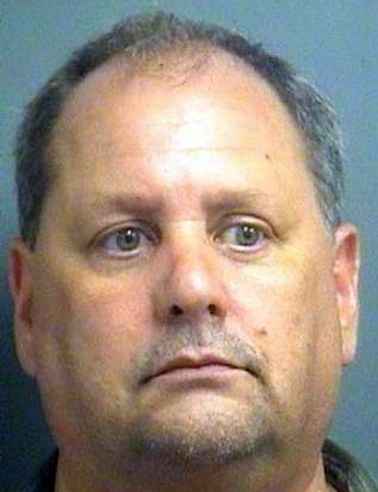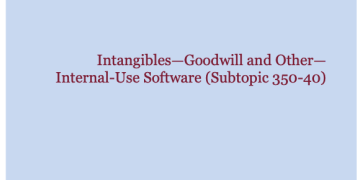Robert Kolaczynski asked for no prison time, so that he could guide and mentor three young children at home, but a federal judge sentenced him to 21 months in prison for conning a Monsey man out of $1.2 million.
District Judge Nelson S. Roman also sentenced Kolaczynski on Nov. 21 to three years of supervised release after imprisonment and ordered him to pay back Mendel Pomerantz, the victim of his scheme.
Prosecutors had recommended 46 to 57 months in prison.

“The defendant has been engaging in a pattern of lying, cheating and stealing over the course of his adult life,” Margery B. Feinzig, an assistant prosecutor, said in a sentencing letter. “He has shown no remorse in his relentless pursuit to live a life of wealth and privilege by defrauding his victims out of their own hard-earned money.”
Kolaczynski persuaded Pomerantz to loan him money for real estate ventures in Puerto Rico and elsewhere. He tricked his victim into believing the loans could be paid back by claiming he owned land worth $58 million near Pittsburgh, Pennsylvania and a retirement account with $65 million.
Over 15 months in 2011 and 2012, Pomerantz wired Kolaczynski $1,206,500.
“Needless to say,” Feinzig stated, “the defendant did not own the property near Pittsburgh or have $65 million in a retirement account. The defendant never paid back the loans.”
Kolaczynski was indicted in 2016 and pleaded guilty to wire fraud in 2017.
In asking for probation instead of prison time, Kolaczynski painted a picture of severe abuse and financial stress in Canonsburg, Pennsylvania, near Pittsburgh.
His father, a truck driver, and then his stepfather, an alcoholic coal miner, were domineering and aggressive men who subjected him and his mother to physical, emotional and psychological abuse, according to a sentencing memorandum written by Manhattan attorney Margaret M. Shalley.
As his father was dying of cancer and was unable to work, the family had to rely on financial help from his uncle. Kolaczynski began working at a gas station at age 12 to help support the family.
He was the first in his family to attend college, attending Pennsylvania State University, where he studied veterinary medicine. He withdrew with one semester left and worked in a steel mill for two years. Then he worked at a brokerage house, the memo states, and went on to become a vice president of a financial services firm.
After his first marriage and first children, the memo states, “he vowed to never be like his father or stepfather and promised to support and provide for his family. Part of this promise included providing financially so that his wife and children would be comfortable in their day-to-day lives and would not have to worry about expenses.”
His mother had lived with him for her last 15 years, and when she became ill, the memo states, he wanted her, as well as his family, to be financially comfortable. That”™s when he “engaged in fraudulent and larcenous behavior” that led to his arrest.
But fraud and unsavory financial dealings, the prosecution argued, were a regular part of Kolaczynski”™s life.
The money he stole was Pomerantz”™s nest egg. He used some of the money to pay $6,500 a month rent on a Florida home, buy a racehorse and support a faltering racehorse business, pay for his mother”™s funeral and “keep himself out of jail by paying restitution to a victim he swindled out of $200,000 over the purchase of another race horse.”
Feinzig described a “long trail of complaints and victims” going back to the 1980s.
He was accused of violating securities laws when he lost all the money a widow had invested with his brokerage firm. A financial regulator censured him for two years. Pennsylvania barred him from selling securities for 10 years.
He was arrested twice for passing bad checks. Companies he founded were sued over questionable transactions. Consumers in Florida and Idaho filed complaints against him with the Federal Trade Commission. Twice, he did not file federal tax returns and three times he has filed for bankruptcy.
“His financial life is replete with failures to meet his financial obligations,” Feinzig stated.
After the federal probation office recommended 27 months imprisonment, she noted, Kolaczynski withdrew his guilty plea and replaced his attorney. He claimed that he was innocent, his attorney coerced him and he was under the influence of prescription medicine when he pleaded guilty.
The court denied his motion to withdraw the plea.
He had tried to withdraw the plea, Shalley said in a September letter to judge Roman, “because he was psychologically unable to accept the consequences of his actions and the embarrassment and shame he would bear when he had to inform his family of his plea and possible prison sentence.”
Now he was prepared to face the consequences of his actions, she said.
Four days after that September letter, and two days before he was to be sentenced, Kolaczynski asked for a 90-day adjournment because of a medical condition. He claimed he was unable to travel to New York, because “he has lost feeling in both legs which prohibit him from walking and standing safely.”
The court rescheduled the sentencing to Nov. 16.
FBI agents conducted two surveillances. They videotaped Kolaczynski driving his children around, going to a Dunkin”™ Donuts, a shoe repair store and a Home Depot. He was seen interacting with a store employee, carrying a bag back to his car, congregating with parents at a school and bending down to inspect items in a grocery store.
Kolaczynski was “perpetrating yet another fraud,” Feinzig said in a letter to the judge, “this time in what appears to be an attempt to avoid sentencing and the inevitable consequences of his criminal conduct.”
The lawyers, an investigator, a court reporter showed up for the Nov. 16 hearing. Kolaczynski was not there. He had been unable to travel to New York because of severe weather the day before.
Nelson rescheduled sentencing to Nov. 21. If the defendant did not appear on that date, he said he would issue a bench warrant for his arrest.
Kolaczynski was present on Nov. 21, and on the day before Thanksgiving he finally faced the consequences of his actions.


















I am another victim.
were is he? what location? name of prison
Free Bob!
Always been a stand up guy to me.
He tried to get me to invest money I made trading options in a thoroughbred partnership when I was a Merrill Lynch client in 1982. His name for no reason popped into my head today for no particular reason. Amazing that 2018 is his first time being incarcerated